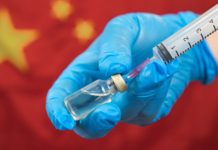GlaxoSmithKline (GSK) and Medicines for Malaria Venture (MMV) have initiated a Phase III global programme to assess the efficacy and safety of tafenoquine, an investigational medicine, being developed for the treatment and relapse prevention (radical cure) of Plasmodium vivax (P vivax) malaria.
The disease is caused by one of several species of Plasmodium parasites known to infect humans and it occurs mainly in South and South East Asia, Latin America and the horn of Africa.
The most serious consequences described to be caused by the infection are severe anaemia, malnutrition and respiratory distress.
The Phase III programme includes two randomised, double-blind treatment trials to investigate tafenoquine in adult patients with P vivax malaria.
The DETECTIVE study (TAF112582) is designed to assess the efficacy, safety and tolerability of tafenoquine as a radical cure for P vivax malaria, co-administered with chloroquine, a blood stage anti-malarial treatment.
The second trial called GATHER (TAF116564) aims to evaluate the incidence of haemolysis and safety and efficacy of tafenoquine compared with primaquine, the only approved treatment currently available for the radical cure of the disease.
The company said that tafenoquine is not yet approved or licensed for use anywhere in the world.
Tres Cantos Medicines Development Centre head of diseases of the developing world (DDW) Nicholas Cammack said P vivax malaria can affect people of all ages and is particularly dangerous because it has the potential to remain dormant within the body in excess of a year, and causes some patients to experience repeated episodes of illness after the first mosquito bite.
“The Phase III programme is designed to build upon the promising results of the phase IIb study, which showed that treatment with tafenoquine prevented relapses.”
“Our investigation of tafenoquine for the treatment of P vivax malaria is part of GSK’s efforts to tackle the global burden of malaria,” Cammack said. “Working with our partners, including MMV, we are determined to stop malaria in all its forms.”
Being developed in collaboration with GSK and MMV, tafenoquine is an investigational 8-aminoquinoline derivative with activity against the P vivax lifecycle, including the form that lies dormant in the liver.
The clinical programme investigates a single dose of tafenoquine, as part of a three-day treatment course with chloroquine, in patients with P vivax malaria.
MMV chief scientific officer Timothy Wells said one of the big challenges the company faces in tackling malaria is to have new medicines to prevent relapse, caused by dormant forms of P vivax.
“If successful, tafenoquine has the potential to become a major contributor to malaria elimination.”
P vivax malaria has a significant public health and economic impact primarily in South and South East Asia, Latin America and the horn of Africa, where the majority of the estimated 70-390 million annual clinical cases occur.





















